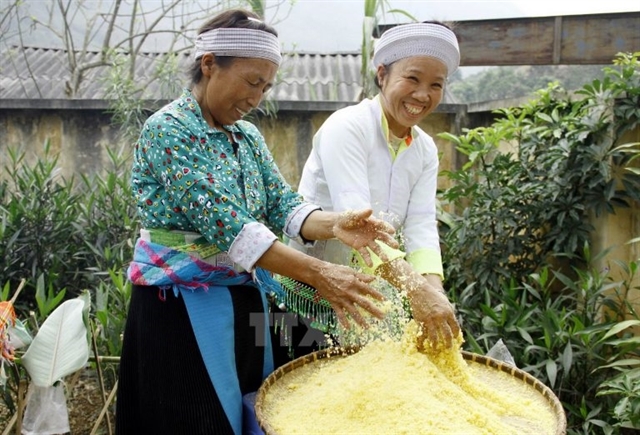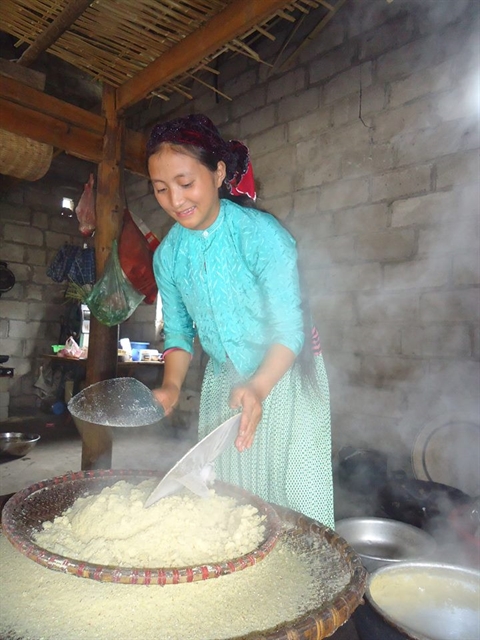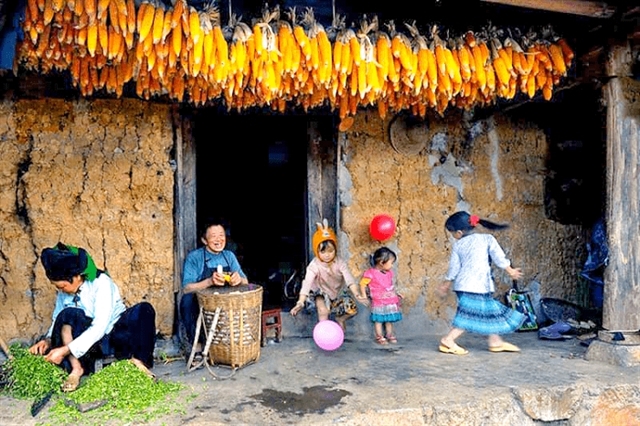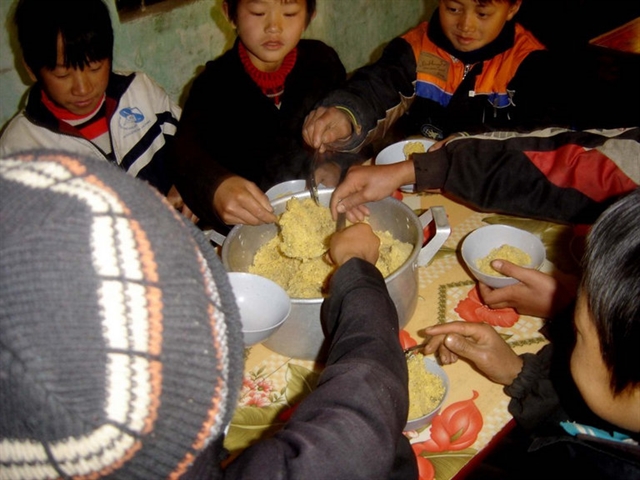 Life & Style
Life & Style

For the Mông ethnic group in the northern province of Hà Giang, mèn mén (steamed minced corn) is both a traditional dish and a special part of their culture.
Hoàng Lan
For the Mông ethnic group in the northern province of Hà Giang, mèn mén (steamed minced corn) is both a traditional dish and a special part of their culture.
Mùa A Sủng, 76, in Hà Giang’s Đồng Văn District, said the province is a rock plateau, so the Mông people must grow maize in small holes in the rock. Despite the harsh weather, maize trees provide sweet and fragrant corn for locals to make mèn mén, which feds them all year round.

|
| Almost Mông women know how to make mèn mén. — Photo baodantoc.vn |
Sủng said corn is the only ingredient in the dish.
"When being harvested, the corn must be hung in the kitchen for several weeks before being dehusked. It is then dried again before being ground with a stone mortar and pestle.”
The corn powder is then mixed with water before being steamed. This process needs experience, or the corn will end up too dry or wet, he added.
After the first steam, all the corn powder is spread on a bamboo basket. The cook then uses a wooden spoon to break it down, and cool steaming it for the second time over medium fire for half an hour, until the corn is well cooked. When ready, it has the sweet taste of the mountains and forests, Sủng said.

|
| A Mông woman cooks the traditional mèn mén dish to celebrate a bumper corn crop. — Photo toquoc.vn |
Mèn mén can be eaten accompanied by kohlrabi, pumpkin buds or gourd soup, but the soup that the Mông people prefer is cháo lảo or canh chua. This is a soup made from ground soybean that is then fermented until sour and cooked with kohlrabi.
“Visitors to our home are confused at first to eat such a soup with mèn mén, but then they find they enjoy its frugality and rich amounts of protein,” Sủng said.
Almost Mông households make mèn mén as their main daily food. The dish has been presented at big parties and anniversaries such as engagements, weddings and the Tết holiday. It is never lacking on ancestral altars.

|
| Corns hang from kitchens or front doors, ready for mèn mén. — Photo baodantoc.vn |
“During these times, we are very happy to sit together around a tray to enjoy the dish, talking with each other on how to preserve the dish as property left by our ancestors,” Sủng said.
Almost all Mông women know how to make mèn mén.
“Young girls are taught how to make the dish since they were young by their grandmothers or mothers. A girl making the dish well is much respected by her husband and parents-in-law,” he said.
Mua Thị Chờn, a native of Hà Giang’s Đồng Văn rock plateau, said since she joined a boarding school 50km from her house, she missed mèn mén very much. Every time she is home, she cooks mèn mén and brings it to the school for her friends.

|
| Pupils in boarding school enjoy mèn mén as a speciality. — Photo vinapad.com |
“I’m proud of our dish because my friends in boarding school say they enjoy it so much,” Chờn said.
Vàng Thị Sảo, from the Centre for Tourism Development, said mèn mén has now become a speciality to lure visitors and travellers to Hà Giang.
“We hope they will be interested in trying the dish and also in discovering the special culture of the Mông."
Every year, during traditional festivals in Hà Giang’s Quản Bạ District, Mông women are often invited to display techniques on how to cook mèn mén.
It aimed to popularise the dish so as to lure more domestic and foreign guests to the province, said Sảo. — VNS




